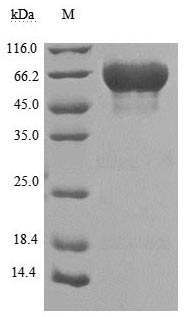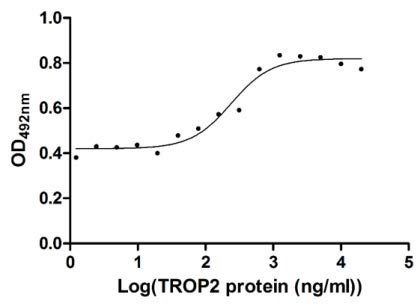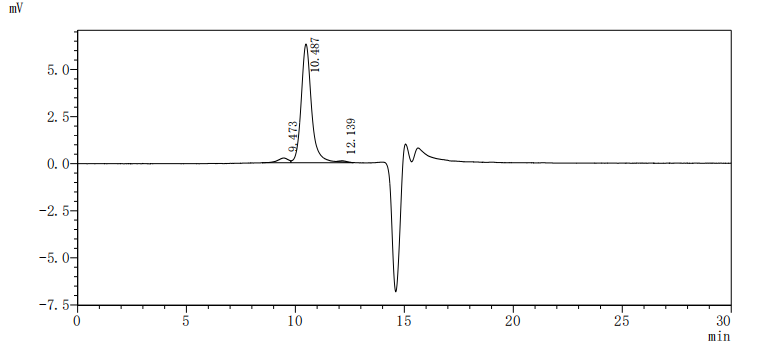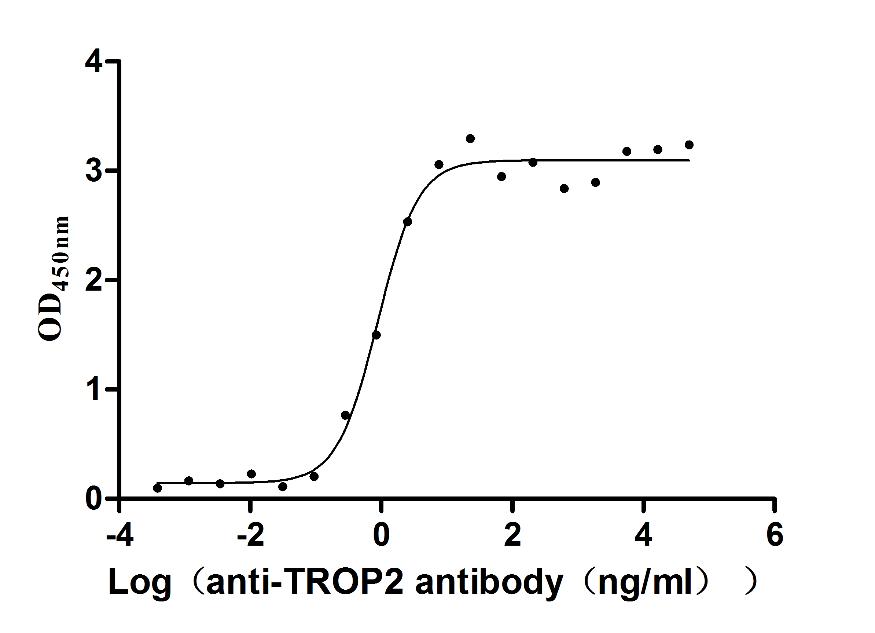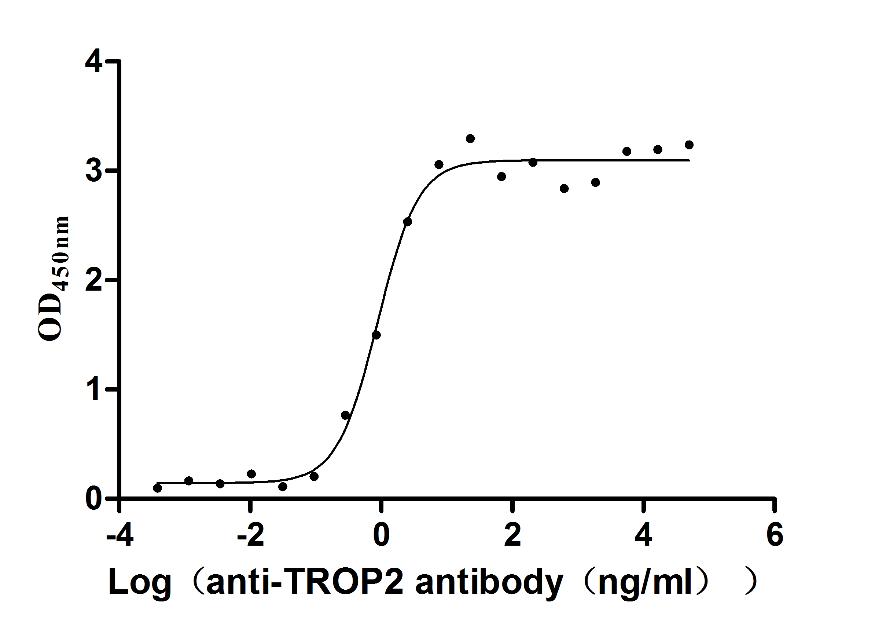With an EC50 between 190.2-298.6 ng/ml on U937 cells, Recombinant Human Tumor-Associated Calcium Signal Transducer 2 (TACSTD2) (also known as TROP2) finds application in various researches, including cancer research. This recombinant protein is a surface receptor with partial length. A DNA sequence encoding the TACSTD2 (27-274aa) was fused with an hFc-tag at C-terminal.
Overexpression and upregulation of TROP2 have been associated with various tumors and cancers. Its tumorigenic effects depend on ligand binding and the activation of intracellular pathways.
TROP2 is involved in the JAK/STAT pathway, MAP/ERK pathway, and the PI3/AKT pathway. It binds with ligands such as IGF-1, Cyclin, Claudin, and Protein Kinase C.
TROP2 also finds application in studies on gelatinous drop-like corneal dystrophy (GDLD). Mutations in the TACSTD2 gene have been shown to play a major role in the development of GDLD.
The purity and endotoxin levels of the Recombinant Human Tumor-Associated Calcium Signal Transducer 2 is determined using SDS-PAGE and LAL method, respectively. The product is over 90% pure with an endotoxin content below 1EU/µg.

